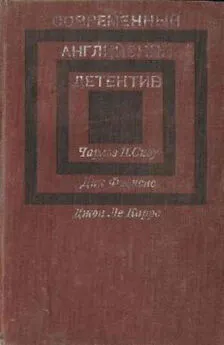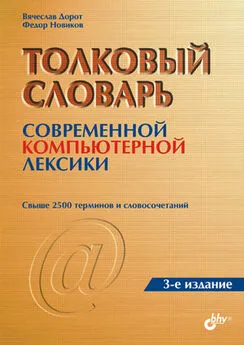Наталья Черниховская - Современная английская лексика для свободного общения
- Название:Современная английская лексика для свободного общения
- Автор:
- Жанр:
- Издательство:неизвестно
- Год:101
- ISBN:нет данных
- Рейтинг:
- Избранное:Добавить в избранное
-
Отзывы:
-
Ваша оценка:
Наталья Черниховская - Современная английская лексика для свободного общения краткое содержание
Современная английская лексика для свободного общения - читать онлайн бесплатно полную версию (весь текст целиком)
Интервал:
Закладка:
a) takes after this person; b) reminds of this person; c) makes it after this person
T
209
11.When a business starts to work well, you can say that it ... .
a) got off nicely; b) took off; c) set off well
12.When your friend invites you for dinner, you can say that he ... .
a) takes you over for dinner; b) takes you out for dinner; c) takes you on for dinner
13.I dropped my Italian class for some time. I want to ....
a) start it over again; b) take it up again; c) take it on again 14.When you ask someone to photograph you, you say:
a) Could you please take a picture of me? b) Could you please shoot me?
c) Could you please take a shot of me?
15.Can you take care of the plants in my house while I’m gone?
a) look after; b) care about; c) take in care
16.— Does the car drive well?
— It’s in tip-top condition.
a) very good condition; b) not a very good condition; c) not too good, but it’s OK
17.I’m sorry I’m late. I was so busy at work I lost track of time.
a) I didn’t notice how the time passed; b) I lost my watch; c) I forgot about our meeting
18.You’ve been trying to track Sue down for three days, but she’s not around.
a) to find Sue; b) to call Sue; c) to reach Sue
19.Fred wanted to start his own business, but with the current situation on the market he’s having ... .
a) second ideas; b) second opinion; c) second doubts; d) second thoughts
210
Современная английская лексика
20.When you’re asking someone to believe you, you say: a) Believe me. b) Trust me. c) Rely on me.
21.The director turned down our proposal.
a) put it in the folder; b) refused; c) forgot about it
U
UFO[ˌjuː ef ˈəʊ] = unknown flying object
НЛО
• — I have a friend who says he saw a UFO once. / У меня есть
друг, который говорит, что однажды видел НЛО.
— He must be taking a treatment in a mental hospital now. / Сей-
час он, должно быть, лечится в психушке.
ugly
уродливый, отвратительный
• — I hear Tracy and Albert are having problems in the marriage. /
Я слышал, у Трейси и Алберта проблемы в браке.
— They got into a fight. He said ugly things to her. She now wants to divorce him. / Они поссорились. Он наговорил ей гадостей.
Теперь она хочет развестись с ним.
understandable
то, что можно понять
• — She said she couldn’t go for work out of the county because she has two kids on her hands. / Она сказала, что не может
поехать работать за границу, так как у нее на руках двое ма-
леньких детей.
— This is understandable. / Это можно понять.
U
211
It’s up to you.
Твое дело. Тебе решать.
• — I don’t want to take on this job. I’m swamped right now. / Я не
хочу брать эту работу. У меня сейчас дел невпроворот.
— OK. It’s up to you. / Хорошо. Дело твое.
What are you up to?
Какие планы? Чем планируешь заниматься?
• — What are you up to this weekend? / Чем планируешь занимать-
ся в эти выходные?
— No plans so far. Any suggestions? / Пока нет планов. Есть
какие-нибудь предложения?
What’s up?
Как дела? Что происходит?
• — What’s up? / Как дела?
— Not so much. / Да ничего особенного.
update
обновить, обновления
• — Do you download updates from the web? / Ты скачиваешь об-
новления из Интернета?
— Of course! On a regular basis. / Конечно! Регулярно.
U-turn[juːˈtɜːn]
разворот
• There’s a U-turn sign a hundred meters up this road. I’ll be waiting for you there. / В ста метрах дальше по этой дороге есть знак
разворота. Я буду ждать тебя там.
212
Современная английская лексика
Exercises
Заполните пропуски и найдите определение или синоним для
подчеркнутых фраз.
1.It’s up to you.
a) Your choice. b) Your deal. c) Your problem.
2.When you want to find out what your friend’s plans are, you say this: a) What are you up to this evening? b) What do you want to do?
c) What are you going to do?
3.What’s up?
a) How are you doing? b) How’s your job? c) How’s your family?
4.You are a boss. Your employee is late. He explains that he was late because he had to take his child to see a doctor. You say:
a) That’s terrible. b) That’s understandable. c) That’s still unclear.
W
wait
ждать
• — Can we meet tomorrow? I need your help with my project paper. / Мы можем встретиться завтра? Мне нужна твоя по-
мощь с курсовой работой.
— It’ll have to wait a bit, I’m afraid. I’m going to be very busy these next couple of weeks. / Боюсь, с этим придется подождать.
Я буду очень занят следующие две недели.
can’t wait
не могу дождаться, невтерпеж
W
213
• Employee: We worked out a new plan. / Мы разработали но-
вый план.
B o s s : Great! I can’t wait to see it. / Отлично! Мне не терпится
посмотреть.
• S inger: I wrote a song about summer! / Я написал песню о лете!
P r o d u c e r : Can’t wait to hear it. / Мне не терпится услышать.
wait out
выжидать
• Two business partners discussing business: / Два деловых пар-
тнера обсуждают бизнес:
P a r t n e r 1 : Things look shaky with this new deal. We may lose a lot of money. What do you think we should do? / Ситуация с
этой новой сделкой кажется ненадежной. Мы можем потерять
много денег. Как думаешь, что нам делать?
P a r t n e r 2 : I say we wait it out and don’t make investments now. / Давай выждем и пока не будем делать инвестиций.
Wait up!
Подожди! Подождите!
• Wait up! I can’t move that fast. / Подождите! Я не могу двигаться
так быстро!
Walk with me.
Пойдем со мной. Пройдемте со мной!
• — Walk with me! I have something to show you. / Пойдемте со
мной. Я хочу кое-что вам показать.
— Can’t wait to see. / Очень хочу посмотреть.
walk out on
покидать, оставлять, не соблюдать условия
• — You’re too nice. That’s why people often walk out on you. / Ты
слишком добрая. Вот почему люди часто тебя обманывают.
— That’s so nice of you to say that. Thank you. / Как мило, что
ты это сказал. Спасибо.
214
Современная английская лексика
warm up to
растаять, подобреть
• — Sally’s father didn’t like her boyfriend Larry in the beginning. But later, when he got to know Larry better, he kind of warmed up to him. / Отцу Сэлли сначала не понравился ее друг Лэрри. Но
потом, когда он узнал Лэрри поближе, он немного оттаял.
— Are they getting along now? / Они сейчас ладят?
Watch out! = Watch it!
Осторожно! Будь внимательным!
• — Watch out! There are corals here. You can cut your feet. /
Осторожно! Здесь есть кораллы. Ты можешь порезать ноги.
— I’m good. I’m wearing sea shoes. / Все нормально. У меня
специальная обувь.
way
способ, метод
• — There are so many delicious ways to cook chicken. / Есть так
много способов вкусно приготовить курицу.
— Which one is your favorite? / Какой твой любимый?
• Have it your way. I’ll do it my way. / Делай, как знаешь. Я сделаю
так, как хочу
way
очень, слишком
• — Can I get a cab from the hotel? / Я могу вызвать такси из отеля?
— Getting a cab from the hotel is way more expensive. / Такси
из отеля намного дороже.
way
путь, дорога
• — Could you tell me the way to the airport, please? / Не подска-
жете, как доехать до аэропорта?
— Take a left here and go straight. / Поверните здесь налево
и езжайте прямо.
W
215
on my way
по пути, в дороге
• — Where are you? / Где ты?
— I’m on my way. / Я еду.
• — Can you go the subway station? I’ll pick you up there. / Ты мо-
жешь приехать к метро? Я тебя там заберу.
Читать дальшеИнтервал:
Закладка:







